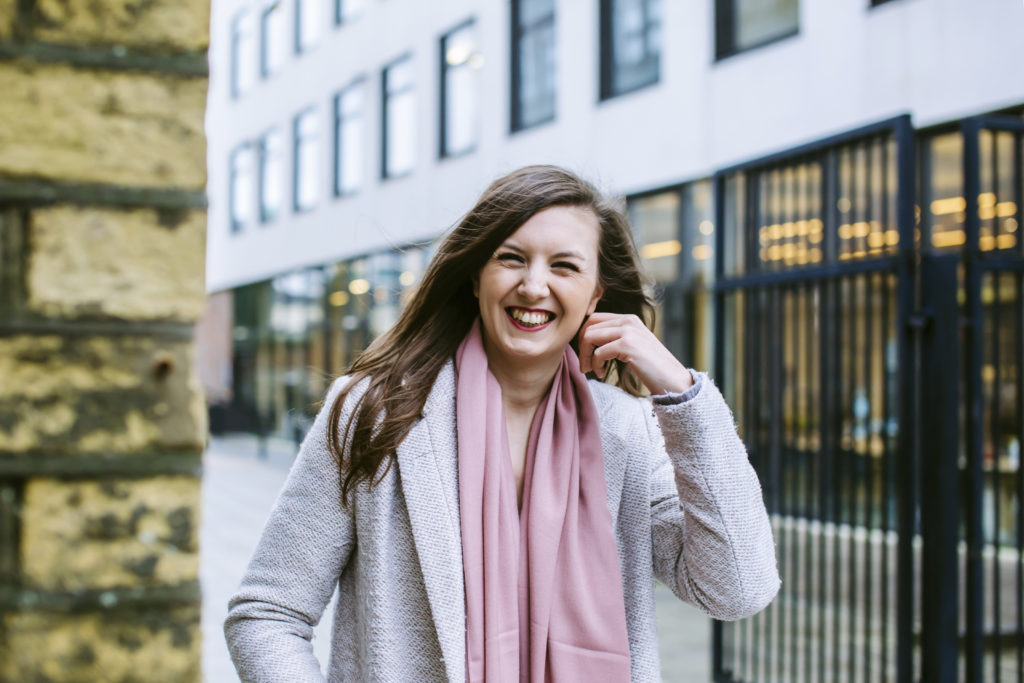- ...
Masters Compare - Find your perfect masters course.

PhD Student Q&A: Are you considering a PhD but want to know more about the process and what it will actually involve? Speaking to someone who's been there is a great place to start. We caught up with Danielle Hayter, a PhD student at the University of Portsmouth, to find out about PhD life and her research in Area Studies.
1.When did you start to think about undertaking a PhD?
After I completed my first Masters, I took a month off and then arranged a meeting with my supervisor to find out how to apply for a PhD so that when I was ready, I would know what I needed to do. However, prior to the meeting I had already had several ideas. In that meeting my supervisor told me about current funding opportunities and I left that meeting having decided I was going to apply.
2. Can you tell us why you chose the subject area you’re now researching and what the project involves
The focus of my PhD is a natural evolution, and combination of the knowledge I have obtained since the beginning of my Bachelor degree. It is also due to a pursuit for answers to questions that have manifested as a result of time passing and knowledge learned. My combined interest and knowledge (and developing expertise) in French Area Studies and Security, and events in France since 2012 led me to ask questions about France’s contemporary military engagement in West Africa. Since my initial instinct of ‘this is something that needs to be studied/requires an answer’, the project has been refined and further defined. Though the project has evolved, it is still the question that I want to answer – how has the French government legitimised its interventions/operations in Mali and the Western Sahel since 2012.
3. How did you secure funding for your PhD, and when did you start researching your options?
I secured funding with the support of my supervisors through the application process – being made aware of the opportunities, helping me to develop my idea and turn it into a proposal. I didn’t really do a tremendous amount of research besides speaking to my supervisor (see answer to Q1). This was because having established a working relationship with my two intended supervisors, it felt like a natural decision to stay at Portsmouth where I had appropriate supervision and was familiar with the research community and facilities. At some point I might have briefly looked online out of curiosity.
4. What does a typical day in the life of a PhD student look like?
No two days or weeks are the same. I have learned that structure and routine is my friend – implementing a Monday to Friday, 9 to 5 routine with evenings and weekends off. I try to plan my week in advance at the weekend, but still allow a degree of flexibility. Depending on the stage of my project, I will have set goals and try to set myself realistic objectives to complete each morning/afternoon/day. I also try to plan meetings at natural times when I know I may not necessarily be the most productive, or at times that are not disruptive to the times when I’m most productive. It is also important to engage in other activities that have nothing to do with your PhD to give your brain a break – I am a Postgraduate Ambassador at the University of Portsmouth, so have opportunities to engage with prospective students and have also participated in a project on Postgraduate Mental Health and Wellbeing.
5. What aspects of studying a PhD are you enjoying the most?
The professional development opportunities such as attending roundtables at Chatham House, attending conferences, writing my first academic publication and contributing something original to my field.
6. Is there anything about studying at postgraduate level that you have found particularly challenging and wish you’d known more about in advance?
The refining and defining of the project and having an empty schedule that needs to be filled.
Although Undergraduate and Postgraduate taught students have free time to fill, they have scheduled classes and deadlines. At PhD, you show up on Day 1 and then don’t have anything in your calendar (generally speaking) until your Major Review submission date in 12 months time. Despite my funding giving me a cohort and a support network, that hasn’t totally eliminated the isolation that naturally comes with doing a PhD.
7. Where do you hope your PhD research will lead you, and what are your career goals for the future?
I hope it leads me to a career that inspires and drives me as much as my studies have done. I do not think my PhD limits me vocationally – I still feel like I have many options available for me to pursue in the next few years. I am unsure if I want to continue in academia, or pursue a career elsewhere but I consider this a positive thing.
8. What advice would you give to anyone who is thinking about doing a PhD?
Find a supervisor that is invested in you and your project and has an expertise that can benefit you and your project – this matters more on a day to day basis than what University you are at, what city you are in or the funding you might want. The right supervisor will (hopefully) be actively engaged in research, know about funding opportunities and will aid in your professional development beyond the project i.e. introducing you to other academics in the field, informing you of workshops, roundtables, events you should be attending etc.
It is not something you have to do on your own, it can (and should) be a collaboration.
You can also check out the University of Portsmouth Podcast and hear more about Danielle's journey to PhD.
Next Steps: